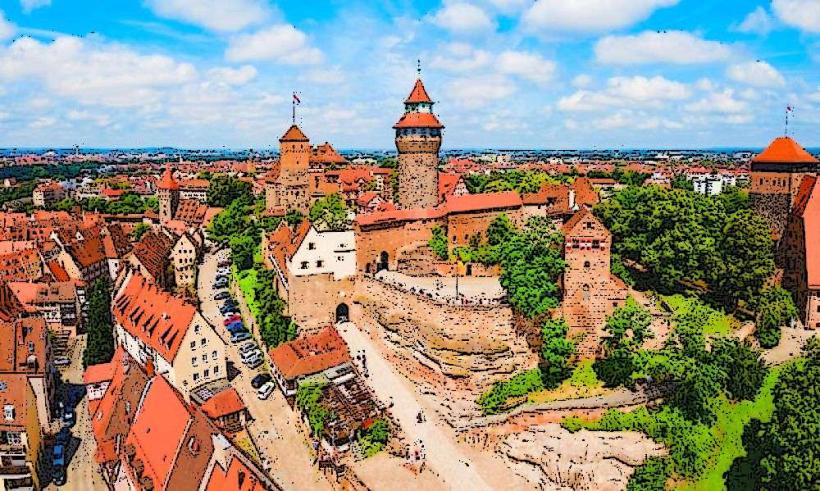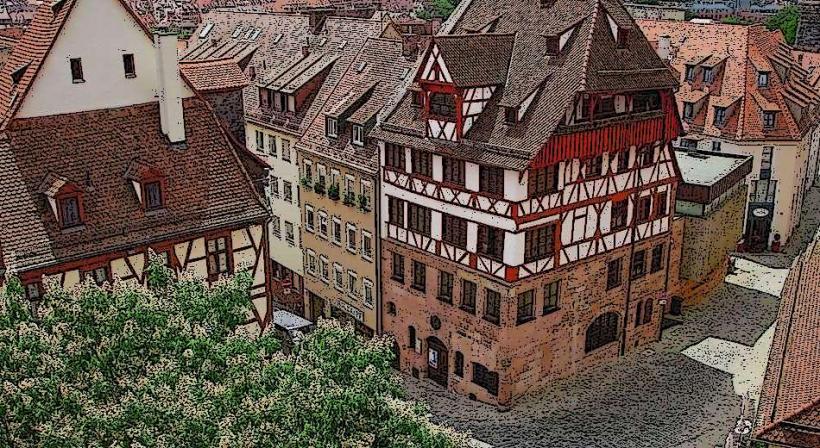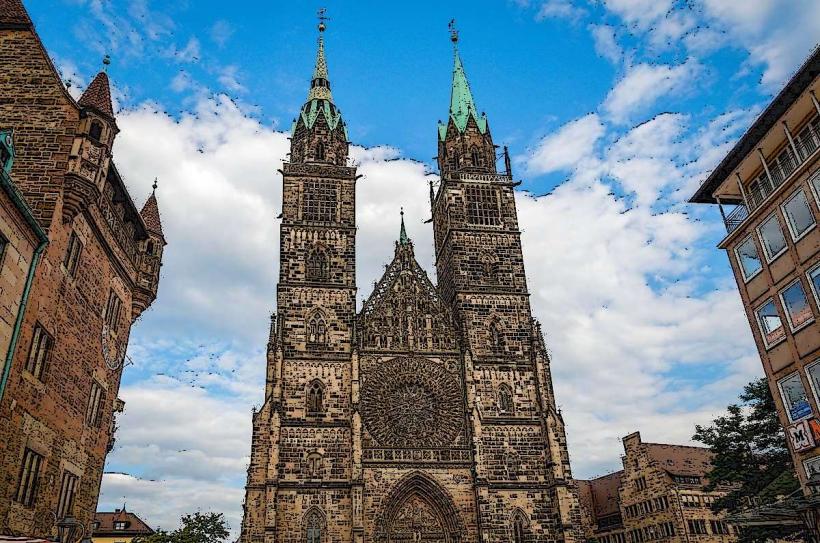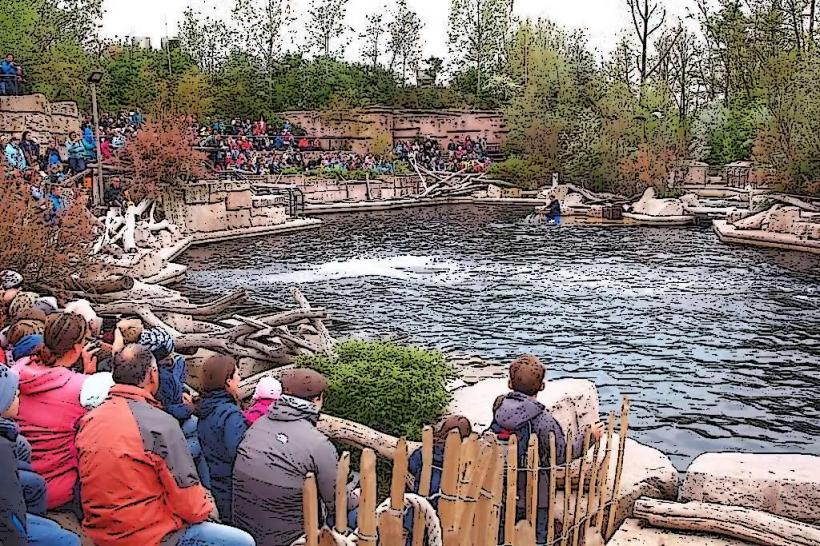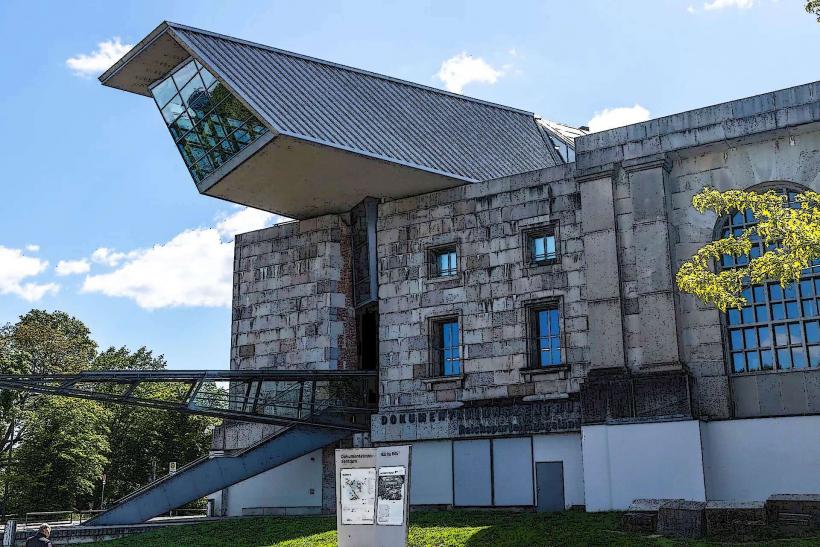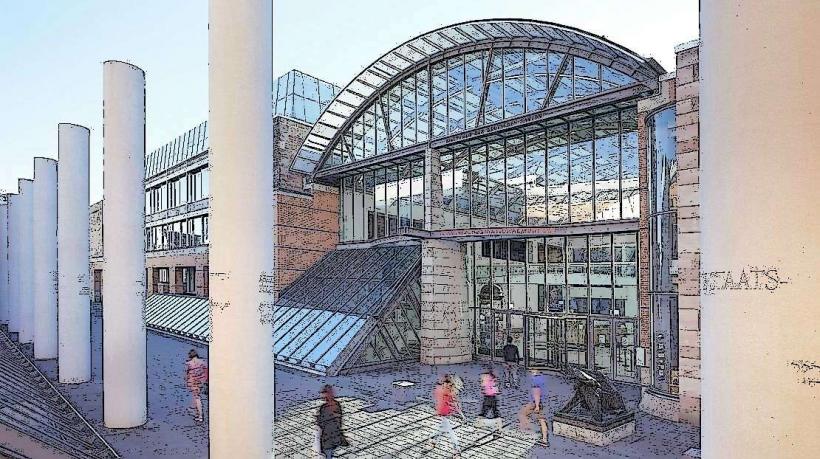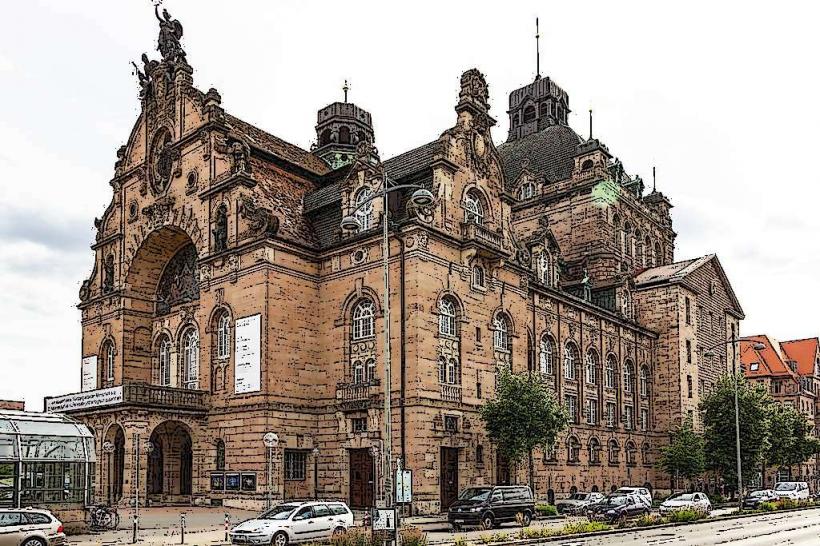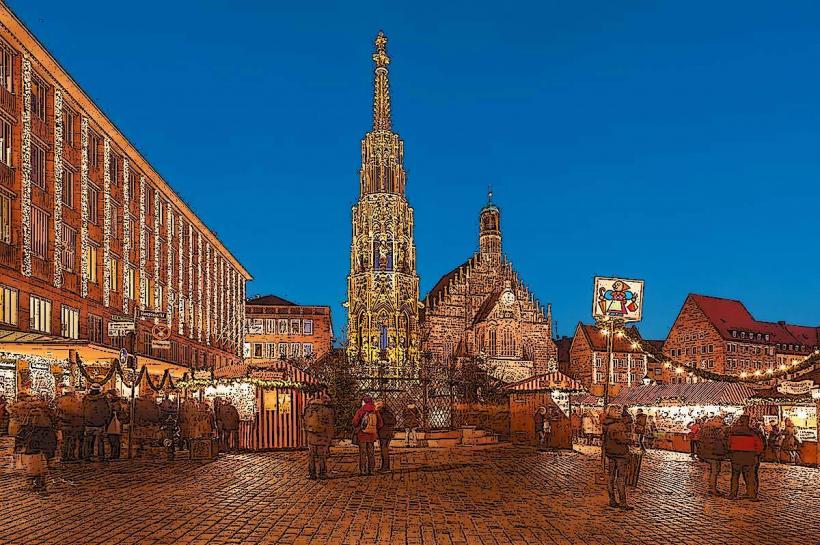Information
City: NurembergCountry: Germany
Continent: Europe
Nuremberg, Germany, Europe
Nuremberg (Nürnberg) is the second-largest city in the German state of Bavaria, situated on the Pegnitz River and the Rhine-Main-Danube Canal. It serves as the unofficial capital of Franconia and is a primary hub for high-technology, industrial manufacturing, and international trade fairs.
Visual Characteristics
The urban landscape is defined by the Imperial Castle (Kaiserburg), a sandstone fortress complex overlooking the Altstadt (Old Town). Architecture in the center features steep-roofed half-timbered houses and sandstone structures reconstructed according to original medieval plans. The city is bisected by the Pegnitz River, characterized by historic bridges like the Henkersteg (Hangman's Bridge). In the southeast, the architecture shifts to the monumental remains of the Nazi Party Rally Grounds, built from granite and concrete.
Location & Access Logistics
Nuremberg is located 170 kilometers north of Munich. It is served by Nuremberg Airport (NUE), 5 kilometers north of the center. Nuremberg Hauptbahnhof is a major rail junction with ICE high-speed connections to Berlin (3 hours) and Munich (1 hour 10 minutes). The VAG transit network operates an integrated system including Germany's first fully automated driverless U-Bahn lines (U2 and U3), as well as trams and buses. Vehicle access to the center requires a green environmental sticker; parking is concentrated in underground lots at Hauptmarkt and Insel Schütt.
Historical & Ecological Origin
Nuremberg became an Imperial Free City in 1219 and was the de facto capital of the Holy Roman Empire, where the Imperial Regalia were kept. It was a center of the German Renaissance and the home of Albrecht Dürer. In the 20th century, it was the site of the Nazi rallies and later the Nuremberg Trials. Geologically, the city is built on Keuper sandstone, which was extensively quarried to create a vast network of underground rock cellars (Felsengänge) historically used for beer storage.
Key Highlights & Activities
Visitors can access the Kaiserburg for views of the city's red-tiled roofs. The Albrecht Dürer’s House is open as a museum dedicated to the artist's life and work. The Documentation Center Nazi Party Rally Grounds provides a comprehensive analysis of the city's role during the Third Reich. The Memorium Nuremberg Trials is located in the courthouse where the proceedings took place. The Germanisches Nationalmuseum is the largest museum of cultural history in the German-speaking world.
Infrastructure & Amenities
The city center is equipped with public restrooms near the Hauptmarkt and within major transit hubs. 5G cellular coverage is universal. The "VAG_Rad" bike-sharing system is highly integrated into the local transport network. Drinking water fountains are available in the main pedestrian zones. Food services are high-density in the Altstadt, concentrated on regional specialties such as Nürnberger Rostbratwurst and Lebkuchen (gingerbread).
Best Time to Visit
May to September offers stable weather for outdoor exploration, with temperatures between 18°C and 25°C. December is a peak period for the Christkindlesmarkt, one of the world's most famous Christmas markets. Photography of the Henkersteg and the Pegnitz River is optimal in the late afternoon. The city experiences a temperate continental climate; winters are cold with frequent snowfall.
Facts & Legends
Nuremberg was the site of the first railway in Germany, the Adler, which ran to neighboring Fürth in 1835. A local historical oddity: the city’s underground cellars saved many art treasures during WWII bombings, including the Codex Manesse. Legend holds that turning the seamless golden ring on the Schöner Brunnen (Beautiful Fountain) in the Hauptmarkt brings good luck and ensures a return to the city.
Nearby Landmarks
Imperial Castle (Kaiserburg): 0.5km North of center
Hauptmarkt (Main Market Square): Central hub
Albrecht Dürer's House: 0.4km Northwest of Hauptmarkt
St. Lorenz Church: 0.3km South of center
Documentation Center Nazi Party Rally Grounds: 4.0km Southeast

